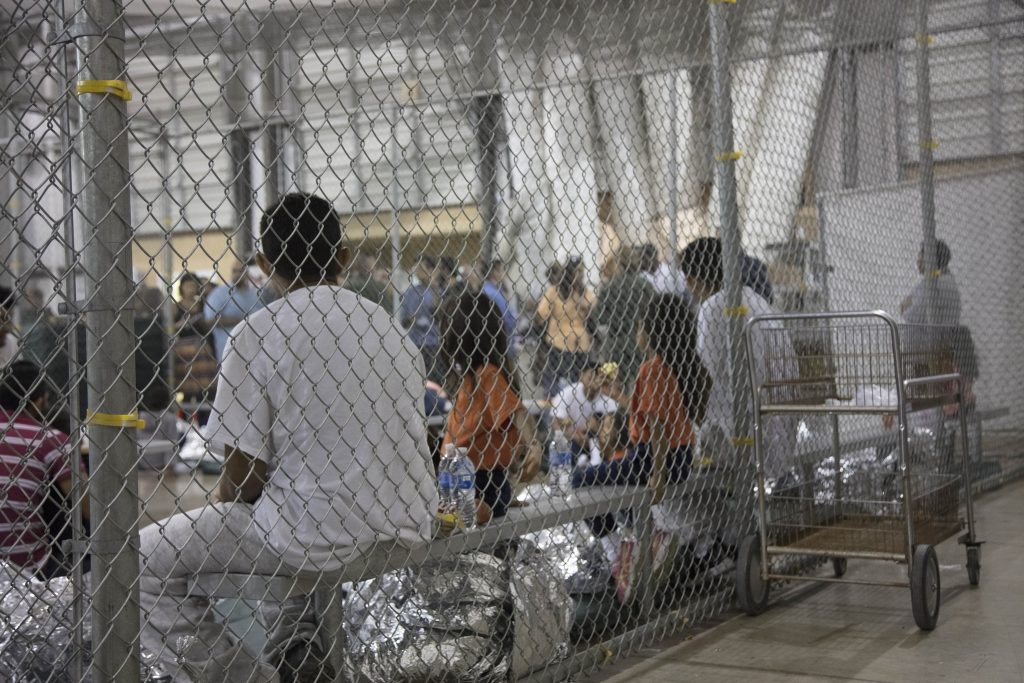
Flattery for the Despot
A few hours after takeoff, Trump picked up his smartphone. Unlike his tweets following the Group of Seven leading industrial nations summit in Canada, his tweets this time contained only friendly words for his partner in the talks: “Thank you to Chairman Kim,” he tweeted, “our day together was historic!” This could hardly be a greater contrast to his message on Air Force One the previous Saturday when he called Canadian Prime Minister Justin Trudeau “very dishonest and weak.”
All day Tuesday, Americans were inundated with pictures from the summit in Singapore. Excerpts from Trump’s one-hour press conference were shown repeatedly. He gave an exclusive interview to Fox, his favorite channel, and accolades for the North Korean dictator continued endlessly. Trump praised the 34-year-old as being “honest” and “direct” and called him “a funny guy … a great negotiator.” Trump raved about his “excellent relationship” with the ruler and concluded, “He's smart, loves his people, he loves his country.”
Calling the leader of one of the most repressive regimes in the world an honorable figure, and the prime minister of a democratic neighbor a traitor, who, as formulated by Trump’s close confidant Larry Kudlow, “stabbed us in the back”?* This paradoxical assignment of roles goes too far for some individual Republicans. “There is no comparison between Justin Trudeau and Chairman Kim,” disagreed Sen. Susan Collins of Maine. “The president and his staff should not be alienating our closest allies, our longtime friends, our reliable allies and our biggest trading partners,” she said. Apart from Collins, conservative protest was rather quiet.
Apparently, the American public has already grown accustomed to its president’s inflated use of flattery and superlatives. Nonetheless, he recently also called Trudeau “a great friend, neighbor, and ally.” It now appears that the half-life of such compliments is extremely short.
“Such statements are not intended to describe reality, but to achieve very specific tactical goals instead,” former CIA Director Michael Hayden analyzed** Trump wants to coerce European partners into changing trade policy. After the carrot of his initial courtship didn’t work, he is now pulling out the stick with tariffs. “We are being taken advantage of by virtually every one of those countries,” he lamented in Singapore, and complained about Germany. “They don’t take a lot of what we have, and yet they send Mercedes into us, they send BMWs into us by the millions,” Trump said.
That sounds like a bizarre form of unrequited love. In fact, both sides of Trump’s personality come together in his extreme flattery: the real estate developer and the narcissist. The president wants to sell something and at the same time prove his genius with the successful sale. He repeatedly boasted that no one before him had succeeded in meeting with Kim. “Am I on the cover again this week?” he asked the correspondent from Time magazine. “Boy, have I — so many covers.”
The mixture of sweet talk and self-flattery reached a ludicrous climax in the four-minute video that Trump himself created for the meeting with Kim. In chintzy Hollywood style, the trailer shows black and white images of dreary everyday life in North Korea contrasted with colorful future visions of dream cities and high-speed trains. “Two men, two leaders, one destiny,” the slogan reads at the end, as Trump holds a raised hand.
Trump Courts Kim in Hollywood Style
Such propaganda is typically only true in autocratic regimes, and indeed, Trump saves his highest praise for Russian President Vladimir Putin, Chinese President Xi Jinping and now Kim. He brushes aside the fact that according to Amnesty International, North Koreans face “human rights violations in virtually every aspect of life,”*** by saying “It’s rough. It’s rough in a lot of places, by the way. Not just there.” This was quite similar to the way he played down the neo-Nazi clashes in Charlottesville: “You also had people who were very fine people on both sides.”
Thus, under Trump, the moral superiority of the U.S. has given way to boundless relativism. Tony Schwartz, who was the ghostwriter for the billionaire’s “Art of the Deal” and has since become one of Trump’s most bitter adversaries, is indignant: “Trump actually gets along better with Kim Jong Un than with our closest allies Angela Merkel and Justin Trudeau. We are increasingly becoming a rogue nation.”**
*Editor’s note: Larry Kudlow was appointed by Trump as the director of the United States National Economic Council this year.
**Editor’s note: This quotation, accurately translated from the original, could not be verified.
***Translator’s note: This quote could not be sourced to Amnesty International, but a very similar statement was made by the U.S. State Department on May 2, 2018.

